Indigenous leaders seek an apology about the mass grave in Albuquerque

Stakeholders: The public park the city built on top of the site should be closed immediately to recreation
Native American leaders in Albuquerque are shaping the response and reconciliation from the city for a park built over a mass grave site of children who died at the Albuquerque Indian School during the earliest period of the United States federal boarding school policies.
The school housed thousands of students from tribes across the country, mostly from New Mexico, Colorado and Arizona, from 1882 up until 1989.
For more than 50 years, the site northwest of the main campus, now known as 4-H Park, was used as a burial ground for students that attended Albuquerque Indian School (AIS) between 1882 and 1933. It made news this summer when a plaque denoting the gravesite was noticed missing from the park. That plaque indicated there were the remains of 110 children buried there, but the records are incomplete, and the number could be greater.
Now, a coalition of Native American leaders in the city have some ideas about moving forward. A report released this week shows suggestions from local stakeholders about the next steps for city government to address the matters at the 4-H Park grave site.
They want an apology from the City of Albuquerque and a clear investigation into how many remains are on site. If any are identified, the group would like input from tribes to return remains back to their home communities.
They want to see the site honored with protection — a marker and fencing off the southeast corner of the park.
Spiritual healing through ceremony is also considered an urgent matter.
“Our vision for the future of this site is one where voices of our community are heard, one where we invite the families of children buried at the site into the conversation,” said Jolene Holgate (Diné), a panelist in the stakeholders report.
They should be able to have a say about what happens to their family members and how they should be laid to rest.
– Jolene Holgate
Holgate also supports closing the park and limiting access.
“There are plenty of other parks in close proximity and other recreation areas that people can continue to utilize,” she pointed out, and there’s no shortage of recreation areas in that part of town.
The report was presented to Mayor Tim Keller’s office and is available for anyone to read on the city’s website. The Office of Native American Affairs is leading the discussion along with the Parks Department and is seeking more public input via email.
Dave Simon is the parks director for the city. “I apologize that it wasn’t right by my predecessors and that we didn’t make it better sooner,” he said during a session with stakeholders on Aug. 17. “The city is committed to continue working with tribes, pueblos, and community leaders such as yourselves to determine the right path forward.”
The school was established by the Presbyterian Church. In 1884, the federal government assumed control over the school and made New Mexico a prominent hub, enacting federal Indian Boarding School policies set to assimilate Native children into white anglo society.
It’s unclear how many children died at the boarding school and how many are buried at the city park.
We do know the communities where some of these students came from — but never returned.
Through its investigation determining the next steps for the gravesite at 4-H Park, city officials are reaching out to tribal leaders from New Mexico, Arizona and Colorado.
Terry Sloan (Diné/Hopi) is a tribal liaison with the city’s Office of Equity and Inclusion. He’s leading the effort to reach out to the different tribes that are connected to the remains at the gravesite. To date, he’s in contact with leaders from the Pueblo of Zuni, Apache tribes, Southern Ute and Ute Mountain, Hopi, Pima Salt River, Navajo Nation and the Pueblo Council of Governors.
“We’re waiting for the tribes to provide guidance on what they would like us to do with the site. We’re hoping to get an idea soon, and we will begin to look at solutions,” he said. “We’re aware of the cultural and spiritual aspects of the site that we know we must address.”
The suggestions from these tribes will guide the city’s efforts, Sloan said. Any decision-making should be led by tribal consultation and the stakeholders, the report agrees.
Research into the park’s history has led city employees to dive into city archives. In 2017, a report published by local researcher Joe Sabatini along with the Indian Pueblo Cultural Center lays out how the location transitioned from a gravesite operated by the Indian School into a city park. Sabatini’s report also notes that the site could have more than just AIS students.
The city started developing plans for the plot in the ’60s. According to Sabatini’s report, “The city’s landscape architect stated that the city had made an agreement with AIS to seed the land with grass and to plant trees.”
When the remains were unearthed in 1973, Ed Tayitee, a former caretaker for the cemetery told the Albuquerque Journal that the gravesite could also include AIS staff and young children who died at the local Indian Hospital.
“Because there was no way to take them home (to rural areas) in those days,” Tayitee, who maintained the site until 1964, told the newspaper, which splashed on the front page a picture of a baby’s skull found while digging irrigation holes. Tayitee also said the area was fenced off.
Even after the remains had been discovered, the city moved forward with its plans and created a park on top of the gravesite.
In 1995, a public art installation was moved onto the 4-H Park, and a plaque was added underneath with an inscription written by historian Joe Sando (Jemez Pueblo). It reads: “In honor of former Albuquerque Indian School students interred in the burial ground nearby. ‘Few are recalled after going to rest as these resting here. Indeed, they are in peace.’ ”
In 1999, the city commissioned a study on unmarked grave sites across Albuquerque. Another plaque was put at 4-H Park identifying the location as a mass grave site. That plaque was stolen, likely sometime in 2019, but it made news when it was noticed missing in June 2021 around the time gravesites in Canada were in headlines. The missing plaque prompted these discussions about how the city can reconcile with the past while respecting the dead and using this as a teaching moment.
“This is a sacred site, and it needs our best thoughts and best efforts,” said Simon, the parks director. “It’s not a formal apology, but I would like to apologize to the Native American community for the circumstances we find ourselves in. Guidance on how to handle a site like this should come from the most directly affected tribes and pueblos, and at the same time, had I walked into this situation sooner, this is not how I would have preferred to see a sacred place cared for.”
The city’s Office of Native American Affairs conducted a stakeholders meeting with Indigenous leaders in the city asking them to address two questions. Here are the responses:
“What is your vision for the site for future generations?”
- In whatever actions are taken, focus on the spiritual and healing aspects foremost; be very conscious of the spiritual implications of whatever is done.
- The surviving family members must be the central stakeholders.
- Determine number and origin of remains.
- Ceremonies should be conducted to honor and to heal
- Learn what tribes and families want done with remains — honor that
- Learn what tribes and families want done with the site — honor that
- Honor the deceased, and that they were children: Convert park to cemetery or memorial (some type of sacred site), based on the wishes of the tribes.
- Close recreational aspect of the park immediately.
- Reveal and publicize the history of this and other sites, for education and for healing.
- Return the land to the Native people through the Indian Pueblo Cultural Center, or the pueblos, or all the tribes of N.M.
“What actions/next steps should the City of Albuquerque take in the next 12 months to move this effort forward?”
- Conduct studies to learn how many/who is buried at site (research, ground-penetrating radar, mass spectrometry).
- Hold facilitated planning session(s)
- Elicit participation of all tribes — both tribal and spiritual leaders
- Elicit participation and assistance from state and federal (Dept. of Interior) agencies and National Native American Boarding School Healing Coalition
- Initiate healing conversations
- Find Indian School records
- Initiate educational processes about the history of the site and about cultural traditions
- Provide educational/historical information at the site
- Protect the site
- Conduct tribal ceremonies
- Honor and celebrate Native Americans
- City of Albuquerque, make a formal apology
Emmanuel Macron: ‘There is no vaccine for a sick planet’
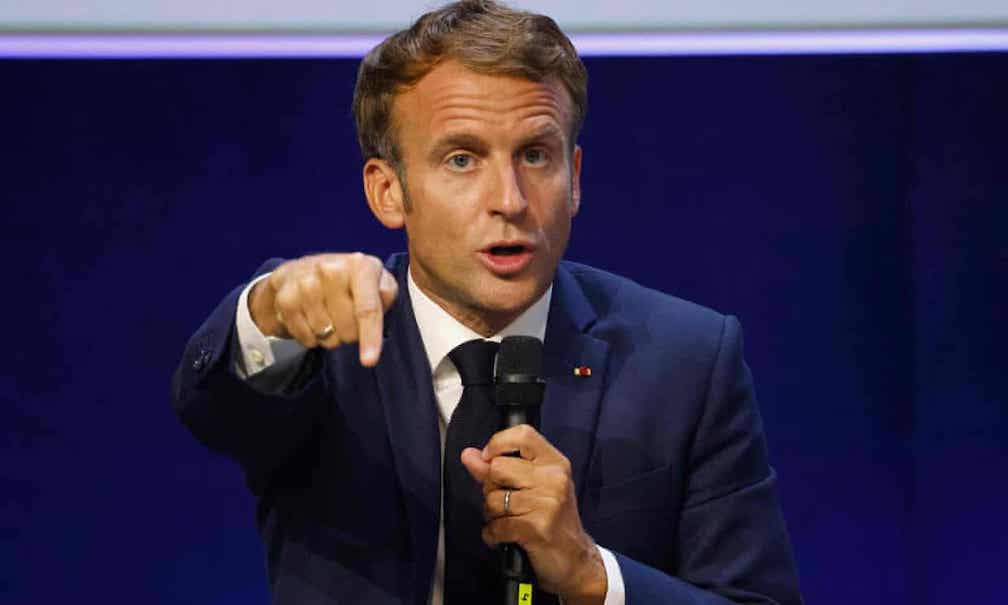
Thousands of scientists and conservation experts gather in Marseille for the world’s biggest biodiversity summit since the pandemic
The world’s biggest biodiversity summit since the start of the pandemic has opened in the French port city of Marseille with a warning from Emmanuel Macron that “there is no vaccine for a sick planet”.
Speaking at the opening of the IUCN World Conservation Congress, the president echoed warnings from leading scientists that humanity must solve ongoing crises with climate and nature together or solve neither, urging the world to catch up on preventing the loss of biodiversity.
“There is no vaccine for a sick planet,” Macron said, detailing the urgent tasks of phasing out pesticide use, ending plastic pollution and eradicating raw materials linked to deforestation of rainforests from supply chains around the world.
In a lengthy speech, he said the world must agree goals and make financial commitments for nature equivalent to those for the climate, and said he would push for Earth’s polar regions to be recognised as common global assets at the launch of the congress.
Thousands of scientists, conservation experts and officials have travelled to the Mediterranean city for the summit, which will host events both in person and online, to discuss and share ideas relating to the protection of nature.
It comes after the pandemic forced a year-long delay to the meeting in Marseille and a UN biodiversity summit in Kunming, China, where it is hoped countries will agree a “Paris-agreement for nature”.
In a recorded message, the Chinese prime minister Li Keqiang said countries must work together to create a “clean and beautiful world”, highlighting the enormous journey of a herd of Asian elephants in Yunnan as an example of China’s growing success with conservation efforts.
“Many places have been hit by rare storms and floods. The weather events pose a severe threat to the survival and development of humanity, and make protecting nature and global not-traditional security issues more prescient,” Li said.
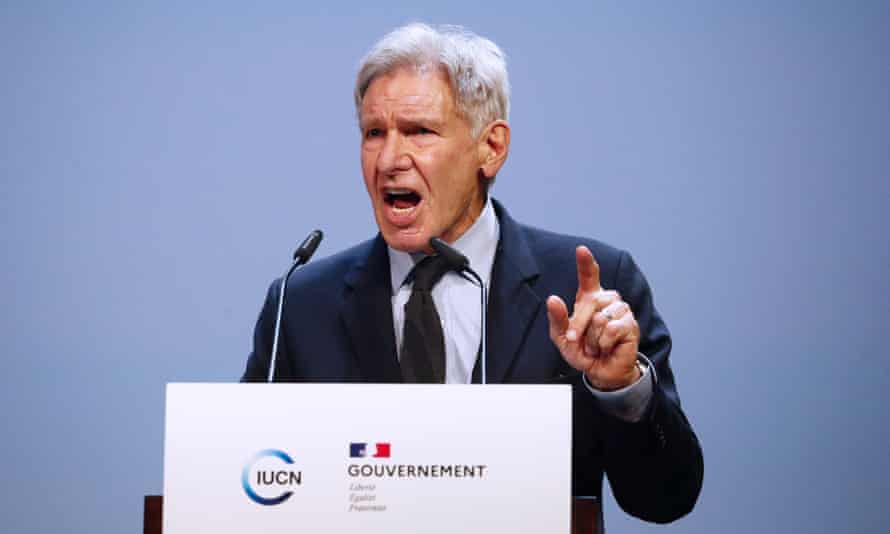
The Hollywood actor and environmentalist Harrison Ford, speaking on behalf of Conservation International, paid tribute to the role of young environmentalists in protecting nature and battling the climate crisis.
“Reinforcements are on the way,” Ford said. “They’re sitting in lecture halls now, venturing into the field for the very first time, writing their thesis, they’re leading marches, organising communities, are learning to turn passionate into progress and potential into power. But they’re not here yet. In a few years, they will be here.”
Ford, a passionate campaigner for the protection of the Amazon, highlighted the role of indigenous communities in protecting nature.
In a parallel event, indigenous groups, academics and campaigners from 18 countries gathered in the port city for a “counter conference” called Our Land Our Nature.
Delegates want to highlight the way in which indigenous people are negatively impacted in the name of international ambitions to create space for wildlife.
A key challenge is the policy target of protecting 30% of the planet by 2030, which campaigners say could violate many indigenous people’s rights.
“I think we need to rethink the definition of protected areas, those that exist, and we need to look for a more sophisticated model of biodiversity and conservation,” said Dr Mordecai Ogada, director of Conservation Solutions Afrika. “We need to break down the narrative into much smaller and more complex pieces.”
Hundreds of protesters, including representatives from Survival International, Extinction Rebellion, Rainforest Foundation and Minority Rights Group gathered at the Porte d’Aix, which marks the old entry point to Marseille, and marched to the city’s harbour in the pouring rain. The demonstration concluded with speeches, small theatrical displays and chants.
Andrey Danilov, a well-known Sami politician, was detained by the police at the Imandra Viking Fest in the Murmansk region

Today, August 29th, 2021 in the city of Monchegorsk (Murmansk region), during the Imandra Viking Fest organized by the Monchegorsk Development Agency with the support of “NorNickel” and the town administration, police officers detained Andrey Danilov, a well-known Saami politician and director of the Saami Heritage and Development Fund.
Andrei was requested to have his bag searched, which he, fearing for his safety, refused to permit to be searched without witnesses. As a result, the police officers forced Danilov out of the festival area and summoned a police squad to detain him. In order to ensure his safety, Andrey Danilov filmed the incident with his cell phone, to which police officers reacted negatively, warning him that he had no right to post this video to the Internet and could use it in a court only.
The police officers did not specify which court they were talking about. At the moment, Andrey Danilov is charged with a violation of Article 19.3 of the Administrative Code of the Russian Federation, “Disobedience to a lawful order of a police officer,” and was taken to the police station.
Last summer Andrey Danilov was one of the organizers of the international campaign “#AnswerUsElonMusk”, whose participants wrote a letter to Tesla CEO Elon Musk asking him not to buy products from Norilsk Nickel because the company violates the rights of indigenous peoples in the Taimyr and Murmansk regions.
This summer, Andrey Danilov appealed to the Constitutional Court of the Russian Federation in connection with a violation of his right to traditional hunting, which he enjoys by virtue of being a member of the Saami people. The Constitutional Court sided with Andrei Danilov and issued a special ruling in which it obliged Russian federal authorities to “clarify the legal basis for implementing the right to hunt in pursuance of the traditional way of life and traditional economic activities of the indigenous peoples of the North, Siberia, and the Far East of Russia who do not permanently reside in areas of their traditional residence and traditional economic activities”.
The Indigenous Russia editorial board is in touch with the politician and will report on developments.
As disasters mount, central banks gird against threat of climate change
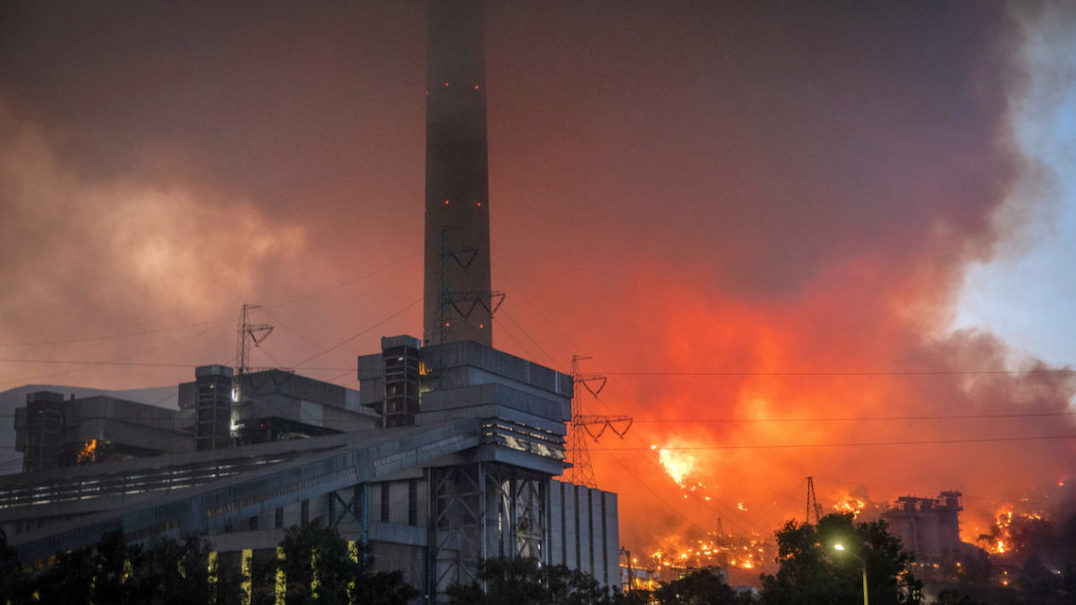
Climate change is rattling the world’s central bankers. With unprecedented heat and wildfires in the American West and southern Europe, and record floods racing through German towns and Chinese megacities in recent weeks, fears are growing among regulators of a coming cascade of climate-induced economic blows potentially more far-reaching and intractable than the financial crash just over a decade ago.
In the past two months, the central banks of the world’s five largest economies — the United States, China, the European Union, Japan, and the United Kingdom — have all raised the stakes in their demands for the commercial banks they regulate to make public the looming risks they face as wild weather takes hold.
Their calls show that central bankers are already responding to concerns about their past passivity on climate — concerns reflected at a G7 meeting in June, where Western industrial leaders issued a final communique that declared, “We emphasize the need to green the global finance system … We support moving towards mandatory climate-related financial disclosures.” That means requiring commercial banks to reveal the risks to their balance sheets — and those of their clients — of both a changing climate and any rapid collapse of markets for fossil fuels as governments try to head off disaster by weaning off fossil fuels.
The world’s major central banks, which control the production and distribution of money on behalf of national governments, have traditionally sought to remain “market neutral” when carrying out their responsibilities. That means they avoid favoring one part of the economy over others. But now the biggest central banks appear to be concluding that carbon neutrality is more important than market neutrality.
In June, the Bank of England launched mandatory disclosure of climate risks by big British banks, with the U.S. Federal Reserve indicating that it intends to follow suit. Meanwhile, the People’s Bank of China said it was making green loans in line with its government’s policy on climate change. In July, the Bank of Japan began offering no-interest loans to commercial banks funding green projects, and the European Central Bank announced that it was looking to gauge the carbon footprint of financial institutions and their vulnerability to climate change.
In addition, British Chancellor of the Exchequer Rishi Sunak recently updated the Bank of England’s responsibility “to reflect the government’s economic strategy for … the transition to a net-zero economy.” Since then, said economist Yannis Dafermos of SOAS University of London, the bank has changed its approach, “going beyond market neutrality to being much more interventionist in the fight against climate change.” In May, it published a discussion paper on options for greening its bond buying, which included setting targets for emissions from its corporate bonds.
Not to be outdone, in July the European Central Bank announced that it intends to “adjust the framework guiding the allocation of corporate bond purchases to incorporate climate change criteria.” Those criteria include European Union legislation to cut EU emissions by 55 percent from 1990 levels by 2030, its target under the Paris Agreement.
The debate among central bankers about how to address climate change was kicked off in 2015 by Mark Carney, then governor of the Bank of England and chair of the Financial Stability Board, an international body that coordinates central banks and financial regulators. At the Paris climate conference that year he warned that climate change was a “systemic risk” to the world financial system.
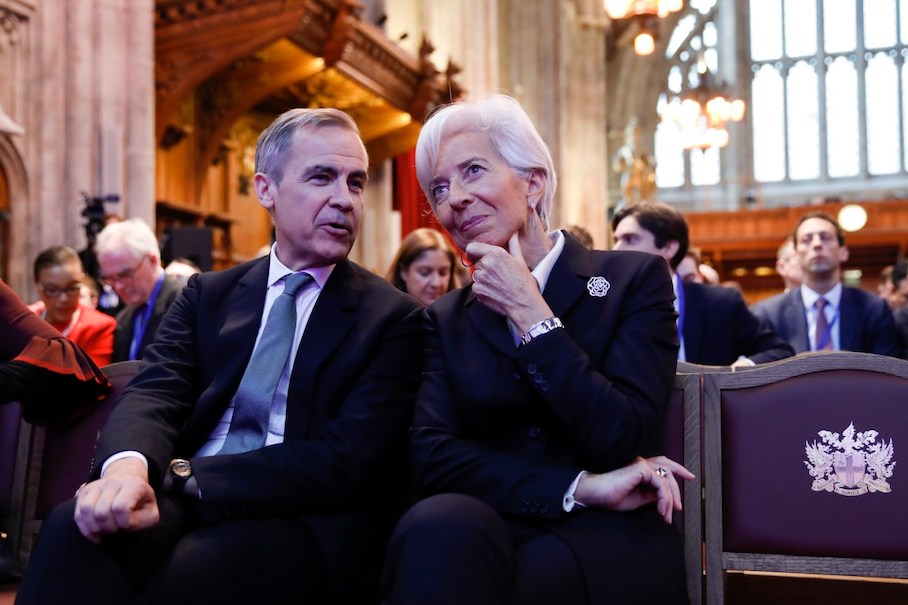
Carney called for central bankers to chart a course for a net-zero world that would not crash capitalism, instead making it part of the solution, and announced that the Financial Stability Board was setting up a task force to develop a carbon-disclosure system — essentially carbon footprinting for financiers.
In a speech to Lloyd’s of London earlier that year, Carney identified two kinds of risks to bankers: “physical risks” to their investments from raging storms, wildfires, flooding river valleys, eroding coastlines, heat waves, and droughts; and “transition risks” arising from the falling value of coal mines, oil wells, pipelines, and other fossil fuel infrastructure plummeting as the world cuts carbon emissions. These could become “stranded assets,” he said.
Carney warned that losses from weather-related natural disasters had risen threefold in the past 30 years. In one particularly stark example of the impact of climate change, a largely unnoticed 8-inch rise in sea levels around Manhattan had increased the losses from Superstorm Sandy in 2012 by 30 percent. His researchers also flagged financial disruption caused by crop failures during droughts in 2007 and 2010. Since his warnings about transition risks, falling demand for coal has forced several major coal companies — including Peabody, the world’s largest — to file for bankruptcy.
Even so, central bankers have generally been slow to smell the coffee. Traditionally, Carney said, bankers simply don’t look far enough ahead or widely enough to see the significance of climate change, noting that the horizon for monetary policy is only two to three years. “In other words, once climate change becomes a defining issue for financial stability, it may already be too late,” he said.
Since he raised the warning flags, Bank of England researchers have emphasized the growing threats. “A weather-related natural disaster could trigger financial and macroeconomic instability if it severely damages the balance sheets of households, corporates, banks and insurers,” Sandra Batten and colleagues concluded in a 2016 internal paper.
The flight of capital could become a stampede, said Sarah Dougherty, a former staffer at the Federal Reserve who now works on green finance for the Natural Resources Defense Council: “The crash of 2008 is seen as the model for what could happen with climate change.”
If one coastal town is washed away by rising tides, or one mountain resort is consumed by wildfires, it could stunt investor interest in hundreds of others. When the value of assets held by a bank falls, it becomes unable to invest elsewhere in the economy. And if one bank rocks, then others look vulnerable too. Additionally, if climate disasters bankrupt insurance companies or lead them to pull out of high-risk areas, it could further inhibit lending.
A modeling study on the interactions between ecosystems and financial systems, co-authored by Dafermos, shows that economic and financial conditions are likely to deteriorate badly at warming above 2.5 degrees C (4.5 degrees F). Since 1900, the world has warmed around 1.1 degrees C. “Declining economic growth and the destruction of capital” will cause corporate defaults and credit rationing, “giving rise to a vicious financial cycle” that will end up stifling green investment along with the rest, “disrupting the transition to a low-carbon economy,” the study found.
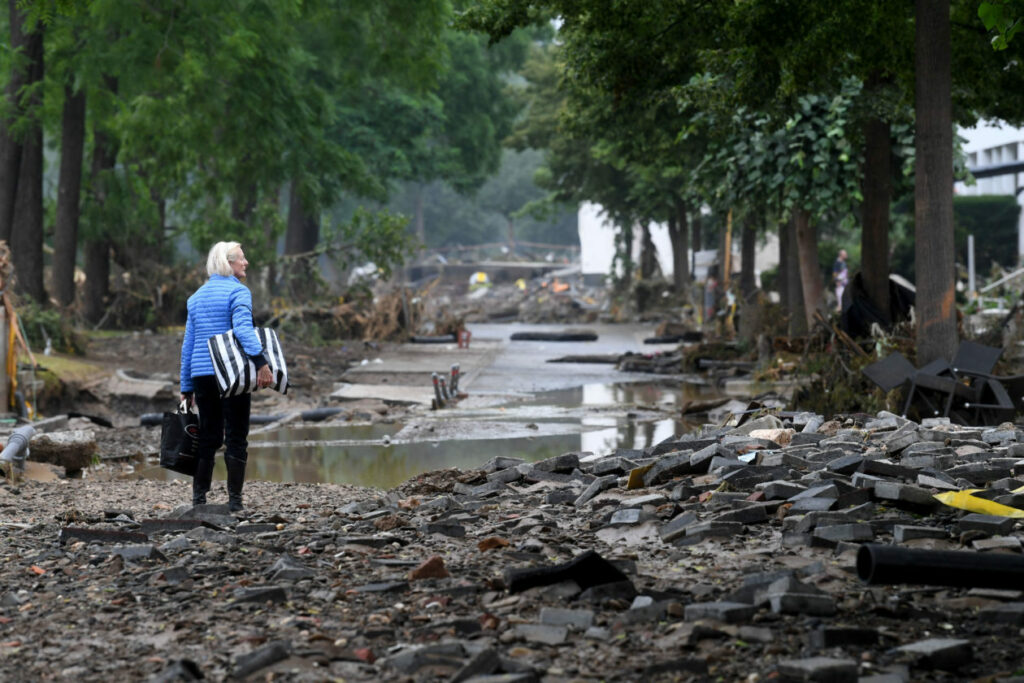
So what do central bankers say should be done? Their first step has been to gain information through requiring big financial houses to investigate and disclose the risks that climate change poses to their solvency. The Financial Stability Board’s Task Force on Climate-Related Financial Disclosures developed best practices, and many central banks are now adopting its proposals.
In its June announcement on climate change, the Bank of England, under its new governor Andrew Bailey, said climate disclosures would be mandatory across the U.K. economy. In the U.S., disclosure is the province of the Securities and Exchange Commission. But Jerome Powell, chair of the Federal Reserve, suggested in July that the U.S. will probably end up requiring banks to disclose data to allow the running of climate stress scenarios, as carried out in Europe. “My guess is that’s the direction we’ll go in, but we’re not ready to do yet,” he told the Senate Banking Committee.
Former Fed staffer Dougherty has no doubts: “They plan to do it. It will be announced almost certainly this fall.”
As disclosure becomes de rigueur, a new cottage industry of advisors is emerging to help corporations and financial houses alike through the minutiae of assessing climate risks to their assets, whether flooding of a coastal industrial facility, drought threatening crops, or wildfires ripping through forests. Insurance companies may be at greatest risk, and their collapse would pose systemic risks to the wider financial system, management consultants McKinsey concluded last year.
Beyond disclosure of risk lies stress testing to see if a company or bank stays afloat under different scenarios, ranging from extreme weather to fossil fuel bans, from carbon pricing to litigation based around responsibility for climate damage. Banks are already required by regulators to carry out stress tests for a range of financial risks. They are usually also required to have enough capital to survive a crisis scenario, and if not, to set aside more. There are now strong moves to add climate risk.
Several major U.S. commercial banks declined to comment on their approach to climate risk for this article. But in a blog post for American Banker last year, Greg Baer, the CEO of the lobbying group Bank Policy Institute, whose members include Bank of America and Citibank, said they were “fully engaged on assessing and disclosing climate risks.” However, he said, formal stress testing of their operations by central banks “is one idea that does not appear ready for prime time.”
The Bank of England, which has generally been ahead of the curve on the issue, announced in June that it was undertaking the first comprehensive stress test of climate risks to Britain’s biggest banks and insurers, to be published in May 2022. It would test their viability under three scenarios: early global action to cut carbon dioxide emissions, delayed action, and no action beyond what is already committed, which Carney, now a UN special envoy on climate action and finance, recently termed the “catastrophic business–as-usual scenario.”
The European Central Bank is also aiming to undertake stress tests starting in 2022, while the People’s Bank of China has already conducted stress tests, though it has yet to publish the results. Leading central banks could, as with other stress tests, use the results to impose new requirements on commercial banks to hold more capital if their existing investments are considered high risk, but it’s not clear if or when they will do so. The Bank of England has said that its stress tests are for the moment “exploratory” and would not be used in this way, drawing ire from critics.
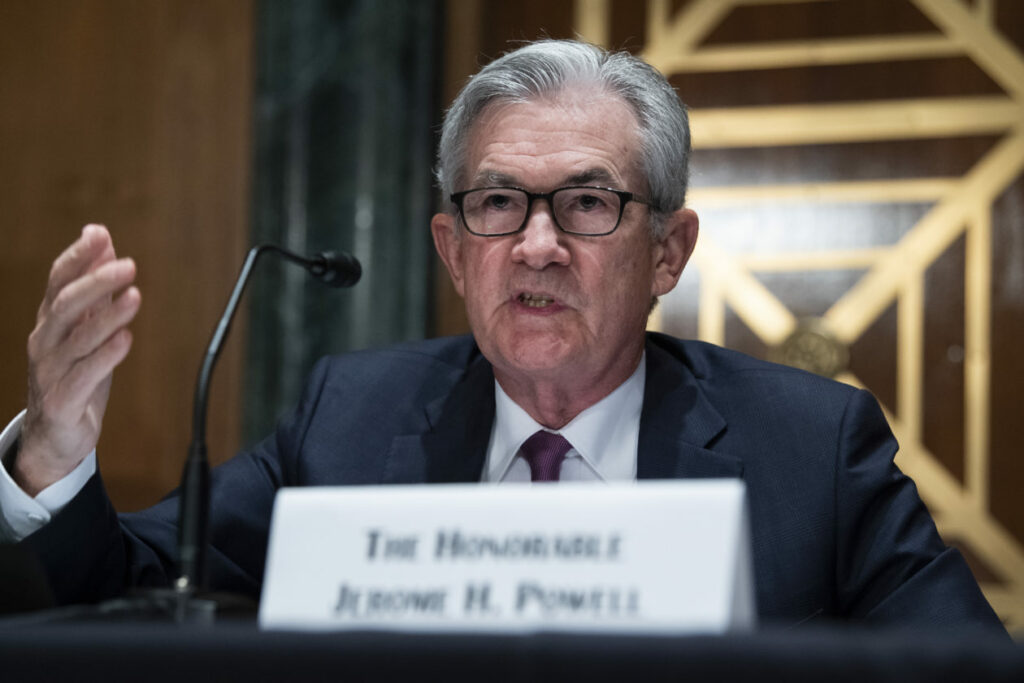
The bank is “stalling,” said David Barmes of the London-based advocacy group Positive Money. “Every day the Bank delays the implementation of climate capital rules, it further undermines its remit to protect financial stability and support a net-zero transition.”
The presumption behind disclosure and stress testing is that if they reveal potentially scary outcomes, this will change investment behavior and allow what economists see as a more efficient allocation of capital in a world in which climate change increasingly dominates economies.
But is efficient allocation of capital the same as an efficient response to climate risk? Dafermos says no. “When finance institutions start protecting themselves from risk, they will start selling government bonds and ending investments in climate-vulnerable countries — those that need more support, especially for adaptation,” he said. “That will make matters worse.”
Rather than protecting the financial system from climate change, “what we need is to protect climate from the finance system,” he said. That will require a much more interventionist approach from central banks.
The possibilities here are huge. Most central banks are big investors. As part of their core responsibilities to maintain economic growth, they routinely buy bonds and other financial products. The Bank of England, for instance, currently holds more than $20 billion in corporate bonds. Central banks usually claim they make these investments in a “market-neutral” way. But critics say this is disingenuous. It reinforces the status quo. Market neutrality “hardwires a carbon bias,” Dafermos said.
A 2017 study by Emanuele Campiglio, then at the London School of Economics but now at the University of Bologna, and others found that more than half the Bank of England’s bond purchases were in carbon-intensive sectors of industry. It had not invested in renewable energy at all. The Bank itself in 2020 revealed that its asset holdings were “consistent with” a more than 3.5-degree C temperature rise by 2100. Most other central banks will probably have a similar record.
“This is highly problematic,” Dafermos said. “We have governments trying to get to net zero while central banks are undermining them. Central banks should target carbon neutrality, not market neutrality.” He said the holders of national purse strings should be buying climate-friendly bonds and shunning those inconsistent with the Paris Agreement, which aims to hold temperature increases to below 2 degrees C.
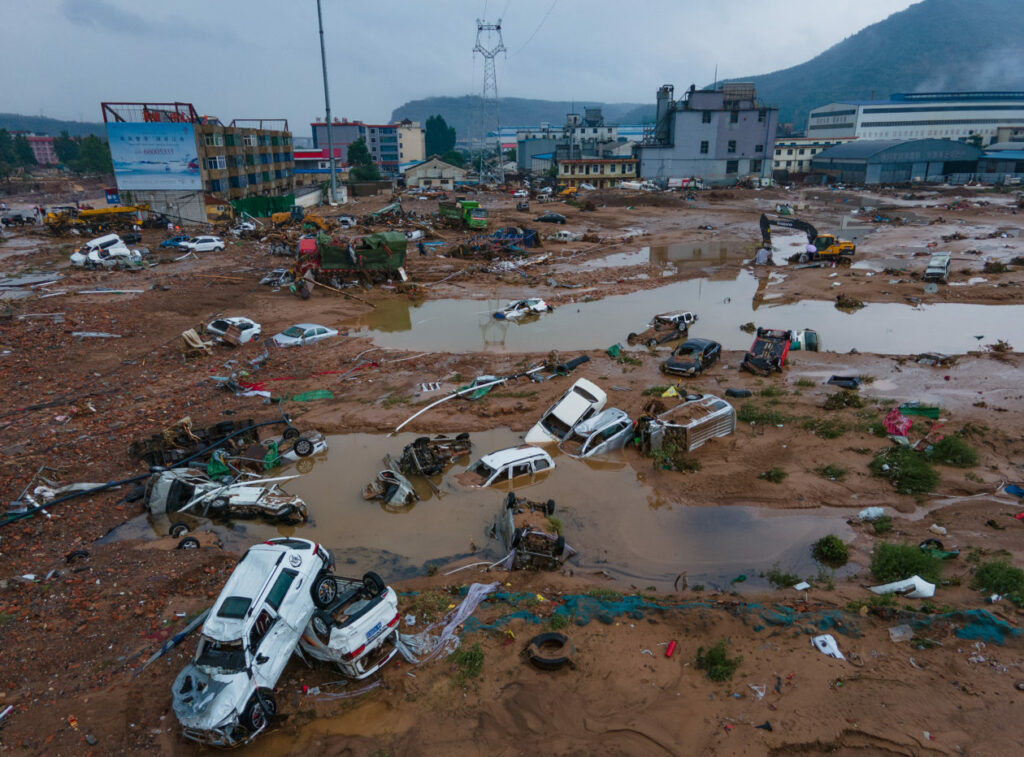
Nick Robins of the London School of Economics, who was formerly in charge of sustainable finance at the UN Environment Programme, agrees. “At a minimum, central bank actions should not be working against net-zero plans,” he said.
But Campiglio said that “there are good reasons behind keeping central banks independent [of government policies]. Moving towards a system with stronger government control — as in China — might help with supporting a low-carbon transition but could be a risky path for institutional legitimacy and credibility.”
Across the Atlantic, Powell remains much more cautious about such market interventions. He insisted in June that climate change remains a matter for the government rather than the Fed’s monetary policy. But that could change. As Dougherty wrote in a blog post in March, the Fed’s self-described goal “to promote the effective operation of the U.S. economy and, more generally, the public interest” means that it “has the authority — and the duty — to use all the tools at its disposal for climate change work.”
It is now 14 years since the former chief economist at the World Bank, Nicholas Stern, wrote an influential report for the British government which concluded that, as he told the London Times, climate change was “the greatest and widest-ranging market failure ever seen.” Central bankers are still grappling with the implications. But Dougherty believes change is coming. “In five years, I would be very surprised if climate change wasn’t a major consideration in all Fed regulation,” she said.
Pacific Northwest’s ‘forest gardens’ were deliberately planted by Indigenous people
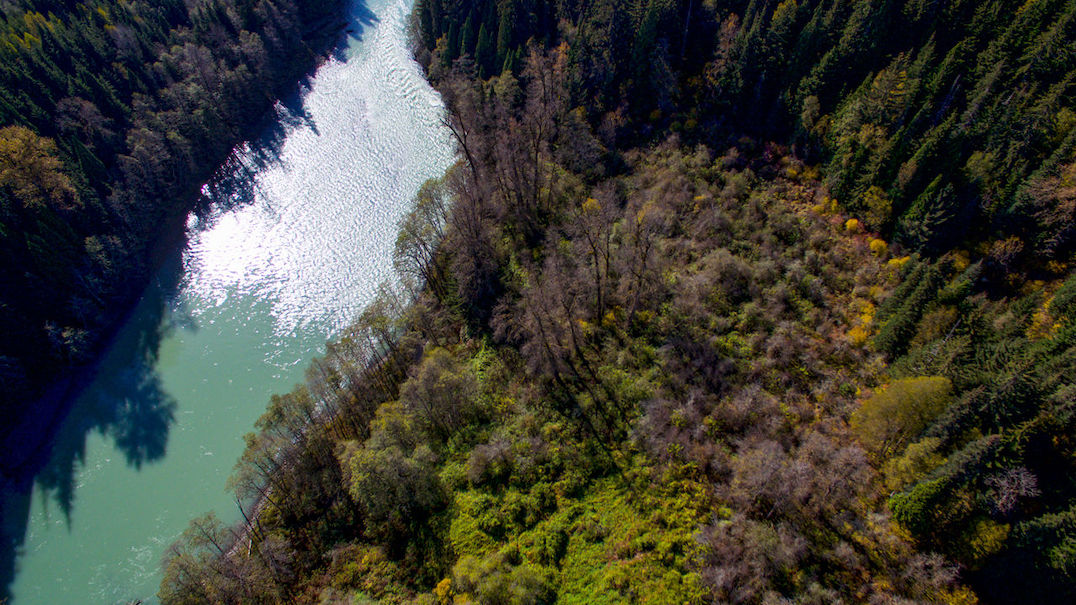
For decades, First Nations people in British Columbia knew their ancestral homes—villages forcibly emptied in the late 1800s—were great places to forage for traditional foods like hazelnuts, crabapples, cranberries, and hawthorn. A new study reveals that isolated patches of fruit trees and berry bushes in the region’s hemlock and cedar forests were deliberately planted by Indigenous peoples in and around their settlements more than 150 years ago. It’s one of the first times such “forest gardens” have been identified outside the tropics, and it shows that people were capable of changing forests in long-lasting, productive ways.
“It’s very creative and sort of unique work,” says University of Kansas, Lawrence, plant ecologist Kelly Kindscher, who was not involved in the research. “Many of us know there are historical imprints on the land, but tend to dismiss Native Americans and Aboriginal people globally in terms of their impact.”
Because these wild-looking forest gardens don’t fit conventional Western notions of agriculture, it took a long time for researchers to recognize them as a human-created landscape at all. Many ecologists argued until recently that such islands of biodiversity, seen also in Central and South America’s tropical rainforests, were an accidental and fleeting byproduct of fire, floods, or land clearing. Without constant maintenance, ecologists assumed, the “natural” forest would quickly take over.
To show that the forest gardens were the result of human activity, Simon Fraser University historical ecologist Chelsey Geralda Armstrong first identified village sites near the city of Vancouver, Canada, and two closer to Alaska that local tribes were forced to abandon in the late 1800s.
Counting and identifying the species growing on and around the former settlement sites, she found they harbored a far more diverse mix of plants than the surrounding conifer forests. The plant species also filled a wider range of ecological niches. “It’s striking to see how different forest gardens were from the surrounding forest, even after more than a century,” says Jesse Miller, a Stanford University biologist and co-author on the study.
Meanwhile, nearby patches of land logged decades ago and left to regrow on their own were covered with just a few species of conifers and didn’t have the same colorful, edible catalog of species. “The forest gardens bucked the trend,” Armstrong says.
That suggests the forest gardens were not only deliberately cultivated by Indigenous gardeners, but also remained resilient in the face of dominant local flora long after people left the scene, the researchers report today in Ecology and Society. The mix of different species was probably key to their persistence, Miller says: “There’s less open niche space, so it’s harder for new species to come in.”
The forest gardens were filled with plants that benefited humans, but they also continue to provide food for birds, bears, and insect pollinators, even after 150 years of neglect. It’s evidence that human impact on the environment can have long-lasting positive effects. “A lot of functional diversity studies have a ‘humans are bad for the environment’ approach,” Armstrong says. “This shows humans have the ability to not just allow biodiversity to flourish, but to be a part of it.”
Other researchers say the findings could help boost the case that Indigenous knowledge has an important place in conservation efforts. “Anthropologists and archaeologists have been arguing in favor of this, but there’s been a lot of resistance from ecologists over the past 20 years,” says Patrick Roberts, an archaeologist at the Max Planck Institute for the Science of Human History who was not involved in the research. This study, he says, is an important piece of evidence showing human modification can add value to ecosystems.
It also helps explain a mystery that puzzled many European anthropologists when they first visited the Pacific Northwest in the late 1800s. Despite the absence of what the Europeans considered “agriculture”—cultivated fields and annual cycles of planting and harvesting—the tribes they encountered were socially complex, with large, sedentary populations and hierarchical societies. “That stumped a lot of anthropologists,” who thought Western forms of agriculture were necessary for complex societies, Armstrong says. “Now we know it wasn’t just salmon.”
D. Berezhkov. A fundamental gap in the understanding of reality between Norilsk Nickel and indigenous peoples
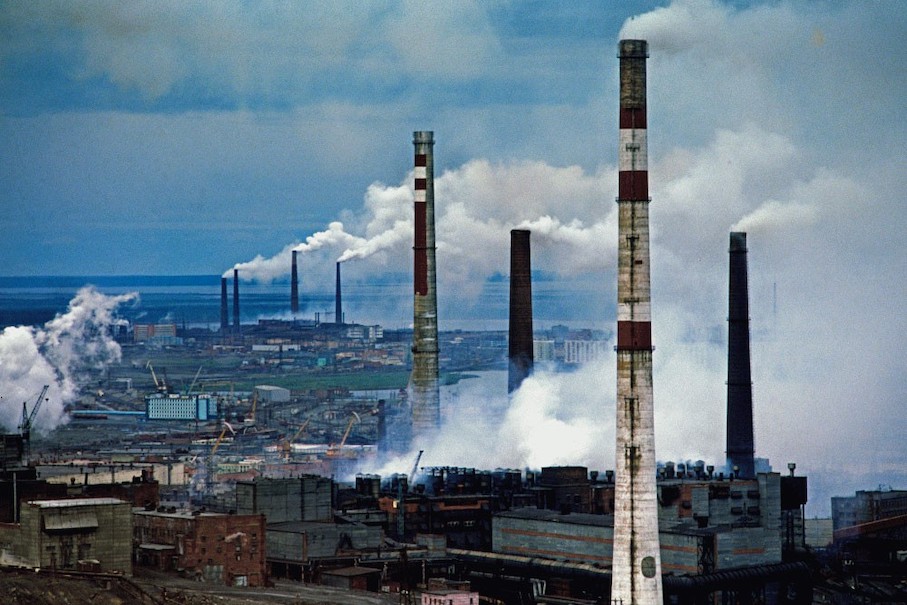
An expanded meeting of the Public Chamber of the city of Norilsk, dedicated to the activities of Norilsk Nickel and «improving the quality of life in Norilsk,» took place in Taimyr in the last days of July. It was a fairly large meeting attended by representatives of public organizations, ecologists, top managers of Norilsk Nickel, and representatives of federal, regional and municipal authorities. Anfisa Nikiforova represented indigenous small-numbered peoples of the North of Taimyr.
Overall, it was an interesting and, at the same time, amusing and sad event. First of all, the status of Anfisa Nikiforova as a meeting participant was unclear. On the one hand, she introduces herself as a representative of the Association of Indigenous Small-Numbered Peoples of the North, but from a variety of regions (sometimes from urban Dudinskaya, sometimes from regional Taimyr, and sometimes from regional Krasnoyarsk — I’m confused). On the other hand, there was a message stating that she is also an employee of Norilsk Nickel, where she works as an advisor to the Deputy Director of the Polar Division of Norilsk Nickel for regional policy and corporate projects. In general, her participation in all Norilsk Nickel events resembles the old saying – to have your cake and eat it too. But more on that later.
I managed to get a link to the live YouTube broadcast of the event, but as soon as viewers started asking questions in the comments (technical questions related to the organization of event), the organizers suddenly turned off the live broadcast and then deleted all of the comments.
Later on, I was able to get one more link after the event ended — a recording of the broadcast on YouTube. However, I found that that the recording was unlisted, meaning it can be accessed and viewed only by those who have the direct link. I am writing this merely to paint the picture of Norilsk Nickel’s transparency and how it organizes such events.
We agreed to enable public access to the meeting as well as certain parts related to indigenous peoples which we started to publish on our YouTube channel.
The meeting can hardly be called a discussion because these were mainly presentations with 5 minutes allocated to discussion afterward, which coincidentally concerned the problems of the indigenous small-numbered peoples of the North. After watching a 3-hour of YouTube broadcasting a fundamental gap in the understanding of reality between the management of Norilsk Nickel, environmentalists, government officials, and the indigenous peoples became clear.
This gap is easily observed just by watching two short presentations. The first one is the presentation by Svetlana Ivchenko, the Director of the Department of Social Policy of Norilsk Nickel, in which she talks about the ways the company is going «to struggle for» free, prior and informed consent of indigenous peoples.
The other one is the presentation by Elena Shumilova, a member of the Federation Council (which is the upper house of the Russian parliament) in which she talks about her wish to «go in the fields» to see what “is being built in the interests of the indigenous peoples who traditionally live on the territory» and to talk with people, because «the meeting here is for those who analyze all of this,» while she wants to «hear the consumers’ voice — those who will use all of this».
If we look at each of these factors separately: ending the live broadcasting, deleting comments, uploading an unlisted video of the meeting and making it accessible through the direct link only, Ivchenko’s presentation, Shumilova’s presentation, the fact that no indigenous representatives were invited to the meeting, except for the very Anfisa Nikiforova, who is an employee of Norilsk Nickel – they look like coincidences, separate statements of separate individuals.
But if we look at these factors cumulatively, they paint a clear picture of Norilsk Nickel managers’ and staff’s worldview and their perception of indigenous peoples. For them, indigenous representatives are not legal subjects. Moreover for Nornickel indigenous peoples are not subjects with specifically indigenous people’s rights, as well as they are not legal persons with general rights living in a specific territory.
For the Norilsk Nickel leadership, indigenous peoples are legal objects — “consumers” (according to Elena Shumilova) — those with whom it is necessary to «to struggle for» (according toSvetlana Ivchenko) the «free, prior and informed consent,” and even then, only because some unknown international standards require it.
It’s like with small children in kindergarten. Yes, sometimes you have to ask whether Vasya or Petya wants to eat and whether they need to go to the toilet. But more serious issues such as when breakfast will be served or when new curtains for the kindergarten’s sleeping room will be delivered are not discussed with the children by teachers. Why should children know about such serious things? After all, this is the business of those «who analyze all of this.»
In her speech, senator Shumilova argued with clearly good intentions. She wanted to help and cared that such roundtable discussions must provide some benefits for the “consumers” as well, but at the same time, she naively revealed the main secret and the main message of the Russian state and business in relation to indigenous peoples.
This reminded me of something that happened to me personally several years ago. In days of old, when Dmitry Kobylkin had just replaced Yury Neelov in the Yamal-Nenets Autonomous Okrug, some Moscow guys were working on creating a new strategy for the development of the Yamal region. And I had become friends with some of them along before — just personally without professional relations. They learned that I also come from the indigenous peoples’ environment and that I work in Raipon, so they invited me to a couple of meetings in Moscow and then invited me to visit Salekhard where they organized a final discussion on Okrug’s development strategy.
All of us, Raipon’s staff, in those days knew that Yamal is the most advanced region of Russia with great aid programs for indigenous peoples’ development, the strongest legislation on indigenous peoples’ rights, with a fraction of indigenous representatives in the regional parliament. By that time, I had also read the UN Declaration on the Rights of Indigenous Peoples, knew about the right to free, preliminary, and informed consent, and had attended several UN and Arctic Council meetings.
The meeting started and there were discussed strategic things for indigenous peoples, such as the development of Bovanenkovo, Sabetta, pipelines through the Baydaratskaya Bay, through the Ob Bay, etc. — the issues on which the life of the indigenous population, reindeer herders, fishermen literally depends. And gradually I realized with horror that I am the only indigenous person at this meeting, and that none of my colleagues from Yamal, are present. Later I asked the guys from the regional indigenous peoples’ association “Yamal potomkam” — “Were you invited, did you know, could you participate?” They said, “No, they did not invite us, and they never invite us for such meetings.”
If the question is about reindeer husbandry, indigenous culture, or native languages – then it’s “yes.” — they invited us to participate. And if the question being discussed is where to lay a pipeline or construct a road — it never occurs to anyone from the government or business to discuss such «serious issues» with indigenous peoples.
And this is the fundamental nature of the contradiction between indigenous peoples and the Russian state or business.
Indigenous peoples demand respect of their rights to lands, resources, and traditional nature use, but those supposed to observe these rights do not perceive representatives of indigenous peoples as legal subjects, as rightful participants in the dialogue who must take part in the decision-making.
I have to admit, in many ways this is due to the unpreparedness of the indigenous leaders themselves (at least many of the leaders), to perceive and analyze such information. This is a misfortune, and it needs to be dealt with systematically. Education is necessary, but not the kind that the current leader of Raipon, another senator Grigory Ledkov suggested for «the leaders of future».
Indigenous youth in Russia needs real international education so they will learn how such values as free, prior, and informed consent work in the other world.
And, of course, it is necessary to educate the representatives of business and the state, such as the leadership of Norilsk Nickel, even despite their resistance. They don’t know how to do it right — they need to be taught, even if they don’t want to be taught.
That was a story about interesting and sad things out of the meeting in Norilsk. But speaking of the amusing things, it was funny to hear some «ecologists» singing glory about Norilsk Nickel. Everybody knows in Russia about the subservience abilities of the PORA office (Project Office for Arctic Development) or Russian WWF (World Wildlife Fund) which love to ranking oil and mining companies in Russia according to their «environmental transparency» and which usually gave to Nornickel the highest positions in such «rankings» (before the environmental disaster of 2020 in Taimyr).
But even they could not surpass this masterpiece of Konstantin Prosekin — the director of the Taimyr natural reserve network «Zapovedniki Taimyra» who said during the meeting: «Norilsk Nickel is the largest in Russia and one of the largest companies in the world for the production of precious and non-ferrous metals such as palladium, nickel, cobalt, platinum, copper. The strategic importance of Norilsk Nickel for the national economy is beyond doubt. The company is among the leading export industrial companies in Russia. The share of Norilsk Nickel in the GDP of the Russian Federation is almost 2 percent. This, in turn, imposes an enormous responsibility on the company as its activity can be used as a tool in both internal and external political relations. I suppose we all understand what this means.»
Lavrov compared the life of bears in Russia and that of Indians in the United States
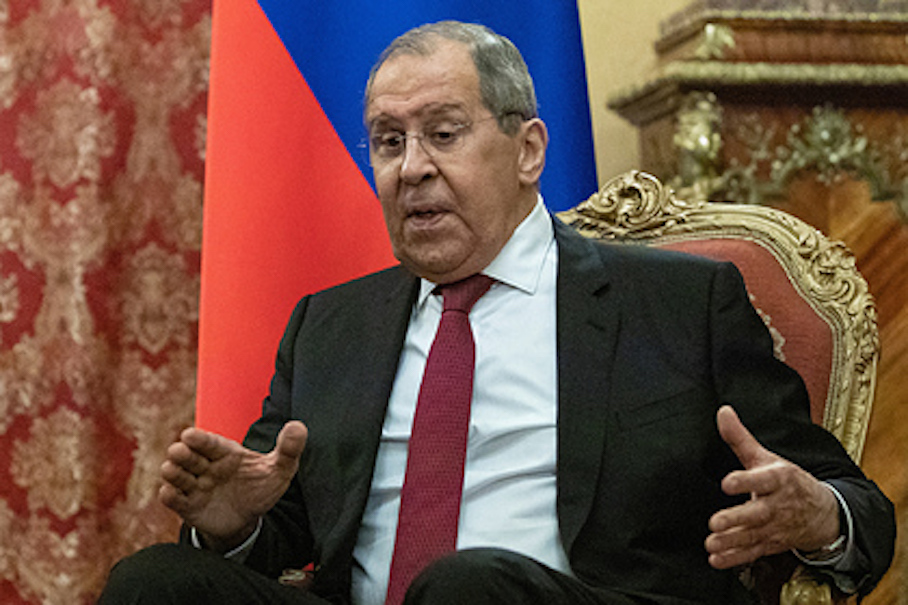
Russian Foreign Minister Sergei Lavrov compared the life of bears in Russia to the life of indigenous peoples in the United States. The diplomat made a comical statement at a meeting with young art and culture workers on the Tavrida art cluster site, writes RIA News …
Lavrov spoke of the bear as the world symbol of Russia. According to him, it creates a positive impression of the country along with other standard associations – vodka and balalaika.
“It is much better that these symbols of Russia evoke positive emotions and smiles than the associations that the Indians, symbol of the United States, evoke in many people,” said the minister, explaining that bears in Russia live better than American Indians. in reserves. , because bears can “walk all over the country.”
Earlier at the same event, the minister commented on Belarusian President Alexander Lukashenko’s reluctance to officially recognize Crimea as Russian territory. Lavrov stressed that the peninsula, as part of Russia, is part of the State of the Union together with Belarus, this follows from Russian legislation.
Climate change: The Arctic reindeer herder whose livelihood is threatened by warmer winters
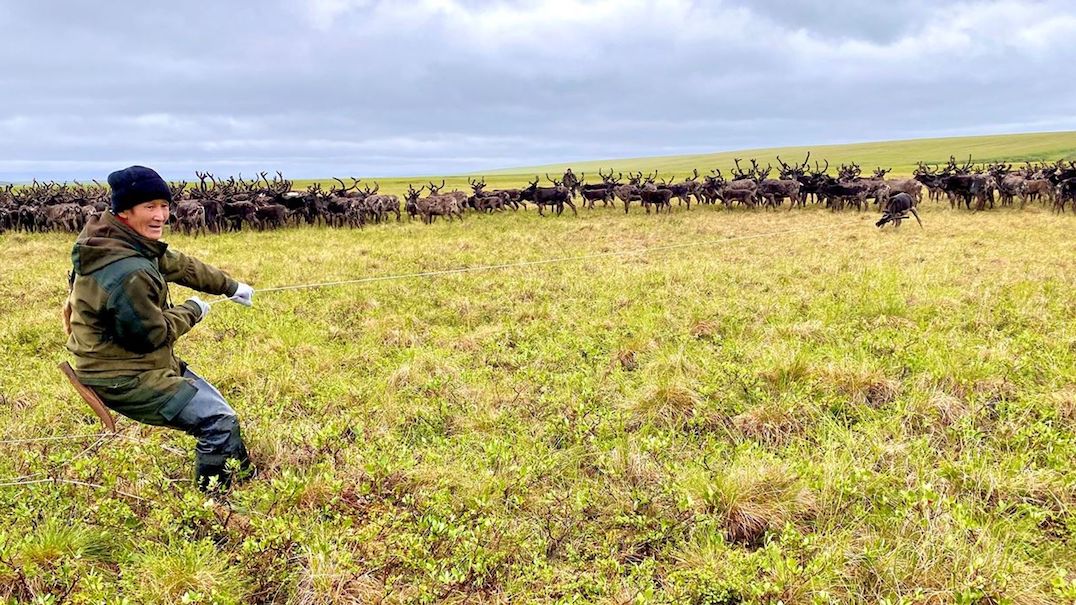
Slava Kemlil, a member of the Chukchi indigenous people in Russia’s Far East, has lived a life bound to nature’s pulse – but the changing landscape of his tundra environment is posing fresh challenges.
Slava Kemlil is waiting for us on the dock in the Arctic town of Chersky.
He’s been there applying for government grants but it is not where he feels at home. Home is in the tundra with his reindeer. “You can relax there,” he says. “You can breathe the fresh air. In the settlement there are four walls and a lot of paperwork.”
Kemlil belongs to the Chukchi nation from Chukotka in the Russian Far East. They are an Arctic people and roughly divide in terms of traditional livelihoods between reindeer herding chukchis and sea chukchis who fish. Kemlil is of the first order but as proficient at sea as the second, guiding our boat deftly past shallow sand banks to dock at the small camp on the shore of the Kolyma river where his team are waiting.
They’re a group of nine, some of them experienced reindeer herders, the rest teenagers on summer placement sent by the local employment centre.
It’s a tough job. Shifts are 12 hours long, two herders at a time. Temperatures can drop to -55C (-67F) in winter and reach 30C (80F) in summer when mosquitoes keep the herd constantly on the move.
“It is in our blood since the dawn of time to be able to survive in such conditions,” Kemlil says.
It is a way of life bound to nature’s pulse. Kemlil lists the ways in which he has noticed changes to the tundra environment since he was young, shifts he attributes in part to man-made climate change. New lakes appearing or disappearing as the permafrost thaws, forcing the reindeer to adopt new migratory routes; less fish in the rivers; fawning season starting 10-15 days earlier with the earlier spring.
Then he backtracks slightly. “The old people used to say that it happened before. Sometimes it gets colder, then it gets warmer. That’s the course of nature.”
Warmer winters though have their drawbacks. More frequent rain and intermittent thaws mean icy crusts form on the snow which damage the reindeer’s hooves and muzzles as they forage for food. Kemlil has had to cull large numbers as a result. Lame animals would slow the herd.
“When such periods come the reindeer lose their fat, they waste all their energy on hoofing the snow. Sometimes you can hear them from far away, it sounds as if they are stomping ice or something very hard. So you have to inspect the routes very carefully to find the soft snow.”
The worst incident this year was when a pack of forty wolves attacked the herd, encircling 100 reindeer and separating them from the rest. That was the last the herders saw of them.
But climate change is bringing larger predators closer too.
Shrinking sea ice means polar bears are coming to the Russian mainland especially around Chukotka in search of food.
Two summers of Arctic wildfires have driven brown bears closer and they are difficult to spot, especially at night. “It’s getting harder,” Kemlil says.
The teenagers are incredibly polite. They keep the kettle filled and the tea coming and wait for permission to start eating. They are smiley and enthusiastic. They seem to be enjoying life on the tundra.
Katya Protoppopova is the only girl in the group. Her mother is Chukchi and grew up on the tundra, her father is Russian.
“I came here to earn money to buy a ticket for myself and go study. I might come back next summer as I like it but I don’t have plans to stay.”
She and some of the other teenagers film us on their phones as we interview Kemlil. It seems a strange juxtaposition against the backdrop of the tundra, so far from reception or any other hints of modernity but clearly no self-respecting teen would be without their phone.
“The world is being widely computerised and it is very difficult to live in this world, especially for the young people”, Kemlil sighs. “They can’t live without technology. We need to try to adapt to this modern world, match it step for step.”
For all the nuances of the shifts in climate and how those play out on the tundra, it is this which seems to worry him most, the eternal question of how to make the young stay.
“From times immemorial our forefathers were breeding reindeer and we try to keep this industry going to make sure it doesn’t disappear in our modern world. The young ones are not quite willing but we do our best.”
Rosatom subsidiary plans for lithium mining on the Kola Peninsula
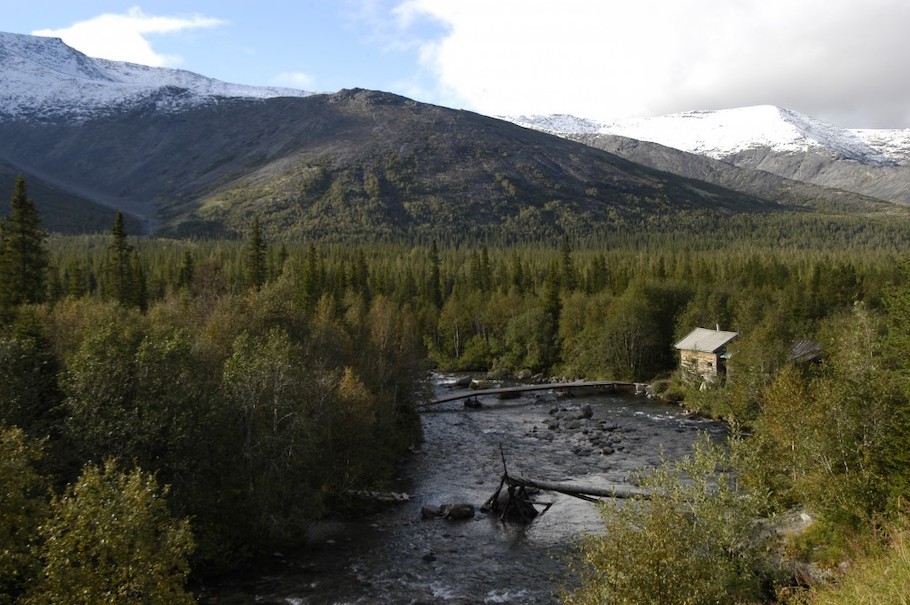
Production of lithium compounds could start by 2030 in both Murmansk and Irkutsk regions with an estimated amount of 50 thousand tons annually.
The world’s hunger for lithium-ion batteries is sky-rocketing as the car industry rapidly changes from combustion engines to electric powertrains. A carbon-free future will additionally require huge amounts of batteries to store wind and solar power on the grid.
Data collected by Bloomberg shows how demand for lithium-ion batteries will surge from roughly 526 gigawatt hours in 2020 a predicted 9,300 gigawatt hours by 2030. To meet the demand, annual production of lithium carbonate should be boosted from today’s 520,000 metric tons existing mining capacity up to 2,8 million metric tons by 2028, a study by Rystad Energy suggests.
The study warns of the risk of a significant supply deficit from 2026-2027 unless new minings are started.
It is Atomredmedzoloto (ARMZ), the mining subsidiary of state nuclear power company Rosatom, that plans to start producing lithium compounds on both the Kola Peninsula and in Irkutsk region in Siberia, newspaper Kommersant reports on Thursday.
Investments in the Russian lithium mining projects are estimated at over 50 billion rubles (€570 million), ARMZ Business Development Director Russian Dimukhamedov told Kommersant.
Dimukhamedov said he counts on government support measures like tax benefits, removal of administrative restrictions and assistance to attract long-term project financing.
ARMZ does not identify where on the Kola Peninsula such lithium mining is planned, but a well-known geological area with huge amounts of rich spodumene pegmatites of lithium is the Kolmozero deposit, halfway between the Khibiy mountain plateau and the coast to the Barents Sea.
This deposit, bordering the large Murmansk Tundra state national park, is centrally located in Europe’s largest wilderness area with no infrastructure like roads or other transport means.
Mining in remote locations is nothing new for Rosatom’s subsidiary. At Novaya Zemlya in the Russian Arctic, digging for zinc at the Pavlovsky mine is already in full swing, as previously reported by the Barents Observer.
ARMZ also considers investment in lithium production overseas by buying stakes in companies with mining rights in Argentina, Bolivia and Chile.
Although more costly to develop deposits in northern Russia, Rosatom would likely give priority to it, Kommersant writes, pointing to the importance of lithium as raw material for thermonuclear weapons. Lithium deuteride is used as fusion fuel in modern thermonuclear weapons (hydrogen bombs).
In March this year, Rosatom subsidiary RENERA LLC acquired 49% of the shares in the South Korean company Enertech International, a manufacturer of lithium-ion battery cells. The agreement between the two companies includes the creation in Russia of production of lithium-ion cells and energy storage systems of at least 2 gigawatt hours by 2030, Rosatom informed at the time.
Former dam executive found guilty in the killing of Berta Cáceres
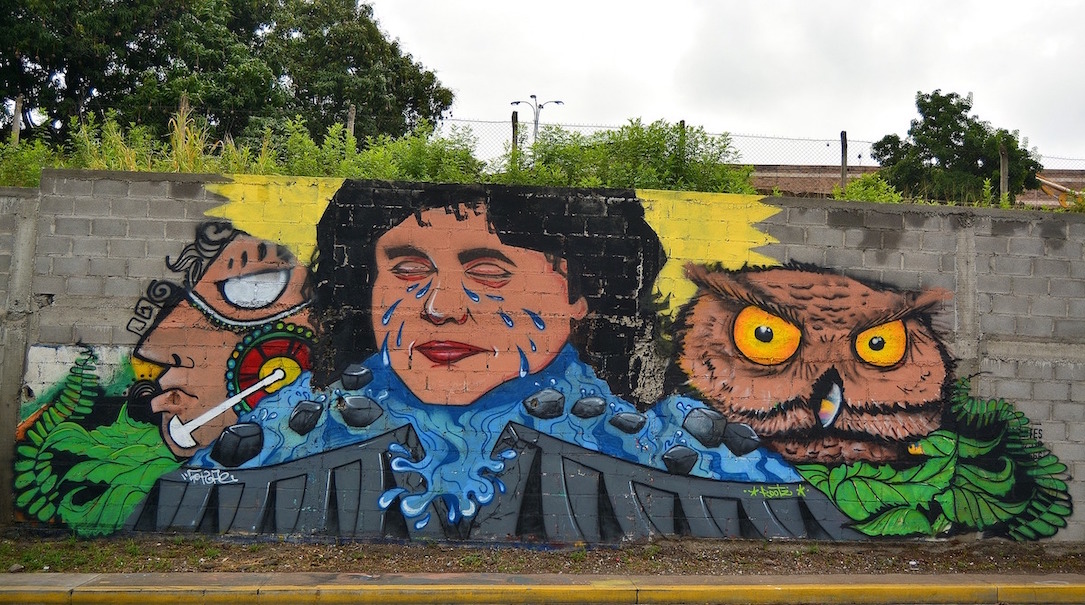
- The alleged ringleader of the 2016 killing of environmental and Indigenous rights activist Berta Cáceres was convicted of murder by a Honduran court on Monday.
- Roberto David Castillo Mejía, the ex-head of the dam company Desa, was found guilty of participating in the assassination of Cáceres. The court decision was unanimous.
- Cáceres was gunned down in her home on March 2, 2016 at the age of 44 after leading opposition to the Agua Zarca dam on the Rio Galcarque, a river that holds spiritual significance for the Lenca people.
- Cáceres was recognized for her activism in 2015 when she won the prestigious Goldman Environmental Prize.
The alleged mastermind of the 2016 killing of environmental and Indigenous rights activist Berta Cáceres was convicted of homicide by a Honduran court on Monday.
Roberto David Castillo Mejía, the former head of the hydropower company Desarrollos Energéticos (Desa) and an ex-army intelligence officer, was found guilty of participating in the assassination of Cáceres. The court decision, reached after a 49-day trial, was unanimous.
Cáceres was gunned down in her home on March 2, 2016 at the age of 44 after leading opposition to the Agua Zarca dam, which was to be built on the Rio Galcarque, a river that is sacred to the local Lenca people. Cáceres — herself Lenca — was the co-founder the National Council of Popular and Indigenous Organizations of Honduras (COPINH).
Cáceres was recognized for her activism against the dam in 2015 when she won the prestigious Goldman Environmental Prize. Her subsequent murder shocked the world and led to the suspension of the Agua Zarca dam.

Castillo Mejía is the eighth person to be convicted in the murder. According to the Associated Press, seven men were sentenced to prison in December 2019 for their role in the assassination, receiving terms ranging from 30 to 50 years.
Castillo Mejía is set to be sentenced in August and is expected to receive 24 to 30 years for allegedly financing the hit and providing support to the hitmen, according to prosecutors.
